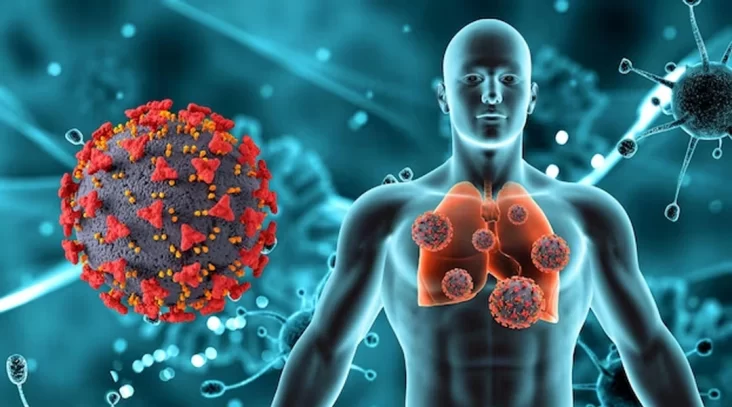The
Paramyxoviridae family
of respiratory viruses includes the human metapneumovirus (HMPV). It is closely related to the respiratory syncytial virus (RSV), which was initially discovered in 2001. HMPV is known to cause respiratory tract infections, primarily in young children, the elderly, and immunocompromised individuals. The virus is particularly prevalent during the winter and spring months.
Infection with HMPV can cause symptoms that are comparable to those of other respiratory viruses, such as:
- Cough
- Runny or stuffy nose
- Sneezing
- Fever
- Sore throat
- Difficulty breathing
In most cases, human metapneumovirus (HMPV) infections are mild and self-limiting, with symptoms improving within a week or so. However, in vulnerable populations, such as infants and the elderly, it can lead to more severe respiratory illnesses like bronchiolitis and pneumonia.
Treatment for HMPV infection is generally supportive and focuses on alleviating symptoms. Rest, hydration, and fever-reducing medications are commonly recommended. Antibiotics are ineffective against viral infections like HMPV, but antiviral medications may be prescribed in certain severe cases.
The most typical way for hMPV to spread from one person to another is through close contact with an infected person who has coughing or sneezing secretions on them, as well as through touching infected toys or doorknobs.
Patients of all ages can develop upper and lower respiratory illnesses as a result of hMPV. The elderly and small children who experience it the most are more likely to acquire pneumonia, bronchiolitis, or both.
Although having a history of asthma, COPD, emphysema, or any other lung condition does not increase a person’s risk of getting sick, it can make their symptoms worse if they do. This is also valid for those whose immune systems are already compromised, such as chemotherapy patients or those recovering from organ transplants.
The best strategy to prevent contracting hMPV is to avoid touching those who have the virus and to wash your hands frequently. If you suspect an infection, protect other people by coughing into your elbow, refraining from touching or sharing potentially infectious objects, and washing your hands thoroughly.
People who have chronic lung conditions like COPD, asthma, or pulmonary fibrosis should constantly take preventative measures to guard against infections like hMPV, influenza, and other dangerous diseases. They should also confirm that all vaccines are current.

